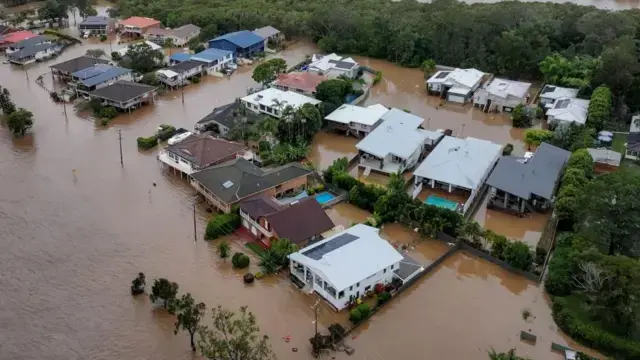The burnt-out shell of the minibus sat smoldering on the roadside near Bilopillia, a stark testament to the brutal reality of modern warfare. Nine people lay dead, their lives extinguished in an instant by a Russian drone. The Ukraine bus strike on Saturday morning, a targeted attack on civilians, has sent shockwaves through the region, threatening to derail already fragile peace talks between Ukraine and Russia. The deadly strike underscores the devastating human cost of the conflict.
The attack comes amid stalled negotiations and escalating tensions, raising questions about the future of the war and the possibility of a lasting resolution. The deliberate targeting of civilians, as alleged by Ukrainian officials, further complicates the already fraught relationship between the two nations.
The Attack in Bilopillia: Details and Aftermath
The tragedy unfolded at 06:17 local time in Bilopillia, a town in the Sumy region of Ukraine. According to Oleh Hryhorov, the Sumy regional head, a Russian Lancet drone struck a civilian minibus, instantly turning it into a scene of carnage. Hryhorov described the attack as “inhumane,” a sentiment echoed by many as images of the destroyed vehicle circulated online.
The minibus, according to local officials, was en route to the regional capital when it was targeted. The resulting explosion and fire claimed the lives of nine individuals and left seven others severely injured. The Ukraine bus strike is now a symbol of the increasing danger faced by ordinary citizens caught in the crossfire of the conflict.
Political Reactions and Accusations
Ukrainian President Volodymyr Zelensky condemned the attack in the immediate aftermath, decrying it as “a deliberate killing of civilians.” His words reflected the outrage and grief felt across the nation. While Russia has yet to offer an official response, state media outlets have claimed that the strike targeted a “military staging area” in Sumy. This assertion is strongly refuted by Ukrainian officials.
“They could not help but understand what kind of vehicle they were hitting,” Zelensky stated, implying that Russian forces intentionally targeted a civilian vehicle. The conflicting narratives surrounding the attack highlight the deep chasm of distrust and animosity that separates the two sides.
Failed Peace Talks and Prisoner of War Swap
The deadly Ukraine bus strike occurred in the wake of unsuccessful peace talks held in Istanbul, Turkey. Despite the lack of a significant breakthrough, there was an agreement to exchange 1,000 prisoners of war on each side, a glimmer of hope amidst the ongoing conflict.
Zelensky had expressed hope that the talks could lead to a ceasefire. Ukraine has repeatedly called for a full and unconditional cessation of hostilities, a demand that has so far gone unanswered by Russia.
The Broader Context of the Russia-Ukraine War
The Ukraine bus strike is just the latest incident in a war that began with Russia’s full-scale invasion of Ukraine in February 2022. Since then, the conflict has evolved into a protracted and bloody struggle, marked by periods of intense fighting and devastating losses on both sides. Recently Ukraine has launched offensives into Russia’s Kursk region, while Russia has intensified attacks.
Prior to this incident, drone strikes in the region had already claimed the lives of three people and injured nine others. A Ukrainian drone strike on an ammunition depot in Crimea further illustrates the escalating nature of the conflict. Adding to the complexity, the US has suggested that any real progress in resolving the conflict hinges on direct talks between Donald Trump and Vladimir Putin. Trump himself has stated, “nothing’s going to happen until Putin and I get together”.
What Does This Attack Mean for the Future of the Conflict?
The Ukraine bus strike casts a long shadow over any future peace negotiations. The deliberate targeting of civilians, if proven, could be considered a war crime, further hardening the resolve of the Ukrainian people and potentially inviting increased international scrutiny and sanctions against Russia.
The attack raises the specter of further escalation, with both sides potentially resorting to increasingly desperate measures. The role of international involvement remains crucial in preventing a wider conflagration and seeking a path towards a lasting peace, however elusive that may seem at the moment.
The impact of the Ukraine bus strike will likely strengthen resolve and further cement the divide between Ukraine and Russia. The attack will certainly make any negotiation toward peace more difficult.
The tragic loss of life in the Ukraine bus strike underscores the immense human suffering caused by the ongoing conflict between Russia and Ukraine. The attack, occurring against a backdrop of failed peace talks and escalating military actions, highlights the fragility of the situation and the urgent need for a diplomatic resolution. The escalating effects of the “Ukraine bus strike” on the region are apparent and will continue to cause further tension.
As the conflict continues, the future remains uncertain. The path towards peace will require sustained diplomatic efforts and a commitment from all parties to de-escalate tensions and prioritize the safety and well-being of civilians. It also requires an understanding of the impact of the Ukraine bus strike and the impact the strike has on the region.
Image Source: MYJOYONLINE






















